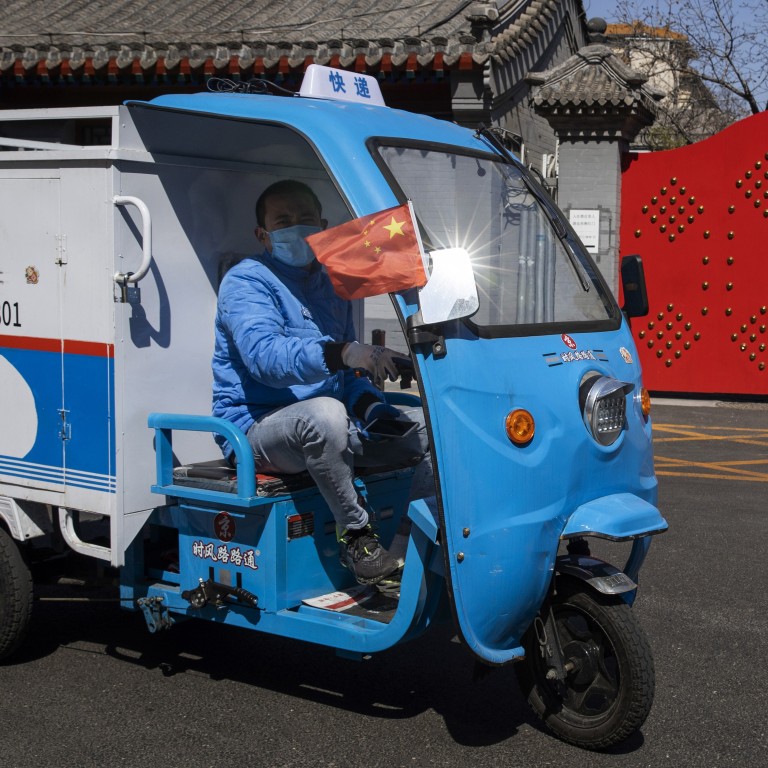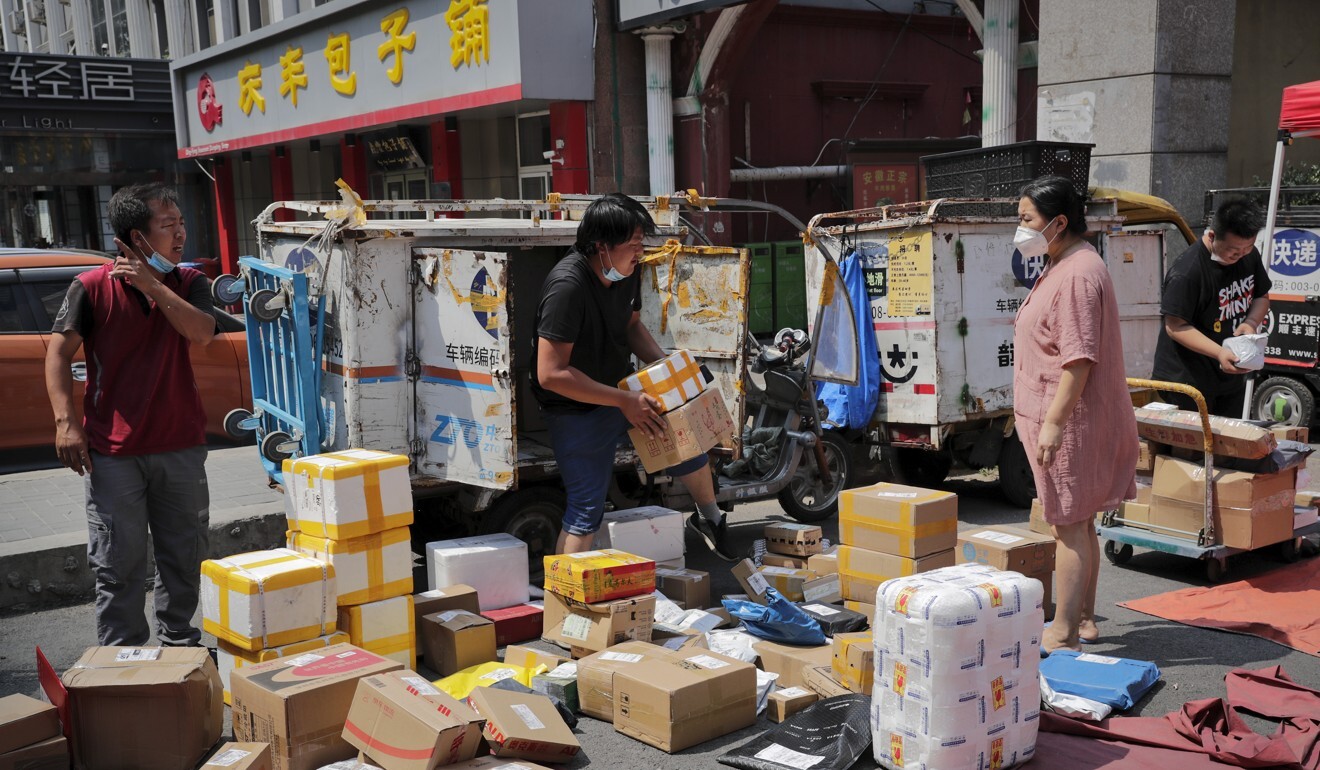
Couriers in China protest late wages during an e-commerce boom resulting from the Covid-19 pandemic
- The NGO China Labour Bulletin has recorded 25 worker protests over late wages at delivery companies in China this year
- Competition has been driving down delivery fees even as the pandemic has made the work more demanding
When much of China’s economy ground to a halt earlier this year, many people continued to get daily essentials and other products delivered to their doors when they could no longer visit shopping centres. The couriers, known colloquially as “delivery brothers”, helped keep e-commerce humming during the Covid-19 pandemic while suffering long hours and low pay. And now a report from China Labour Bulletin (CLB) says many couriers are protesting to get the wages they are owed.
The Hong Kong-based NGO recorded 25 protests by couriers this year. That compares with 27 worker disputes recorded for the entirety of 2019. This year’s protests are all connected to wage arrears, reflecting the difficulties that many delivery companies are facing in the wake of the pandemic, according to CLB researcher Aidan Chau.
“The express delivery industry after the epidemic has been in constant ups and downs,” Chau said.
Parcel delivery companies have been a pillar of China’s online shopping explosion, with the industry seeing a rise since January, when the Covid-19 outbreak was spreading rapidly through the country. More than 56 billion parcels were delivered this year between January and September, up 28 per cent from the same period last year, the State Post Bureau of China announced this week. An additional 7 billion packages had been delivered as of last Sunday, with a lot more likely to come.
As the date gets closer, though, reports of unpaid wages and rumours of delivery worker strikes have been trending on social media. One related hashtag has been picking up steam on the microblogging platform Weibo.
The issue has also been picked up by local media.
Zhang Kun, a former delivery worker, told media outlet Lieyunwang that the workers in his branch have been swamped with a large number of orders. This has led to delays and complaints from customers, he said, so the company is forcing staff to take on more work.
“But our physical strength is limited, and delivering items for a long time without rest is unbearable,” Zhang said. He added that workers are fined for a number of different issues, including late delivery and damaged packages, which is another reason for the strikes.

Zhang also said the companies do not care if couriers quit. The industry has high turnover, he said, and there’s always someone waiting to take over.
More than 75 per cent of delivery workers earn less than 5,000 yuan a month (US$750), with more than half putting in 10 hours or more a day, according to a 2019 report from the State Post Bureau.
These conditions often clash with the image painted by state media, which have been extolling the role of delivery drivers in China’s economy since even before the pandemic. Couriers were even celebrated by a government-sponsored TV show as entrepreneurs pursuing the Chinese dream. The show was made to celebrate the 70th anniversary of the founding of the People’s Republic of China.
But rather than living the dream, delivery workers often lack the protections typically afforded to employees in China.
China had more than 2 million express delivery couriers last year, according to the All-China Federation of Trade Unions (ACFTU). Many of them are migrant workers who are not working under formal contracts.
Many migrant workers turned to delivery work when it became harder to find other kinds of work during the pandemic, Chau said. He added that workers will often wait a couple months before making complaints about late wages.
CLB monitors worker disputes by combing through media reports and social media posts. According to the data, October saw three disputes over wage arrears at the delivery companies Best Express, YTO Express and Yunda Express.
The South China Morning Post reached out to all three companies but did not receive a response by the time of publication. However, Yunda Express and Best Express previously denied that they had issues with worker strikes to business news outlet Caijing. YTO also denied that it had been facing worker strikes in a post on Weibo.
Chau said that most of these disputes have hit smaller companies that act as franchises, so they are not directly owned by the larger delivery firms. And many of these companies have been going bankrupt as competition has heated up, driving prices down.
Free delivery has also become a more common perk as a result of increased competition, according to Helen Chin, vice-president at Fung Business Intelligence, which tracks distribution, retail and technology trends. The number of firms offering free delivery has also gone up, she said.
Chin said she could not estimate whether protests were happening at a significant scale this year, but she noted that it could be a means of raising awareness ahead of Singles’ Day. It could also make the delivery industry healthier in the long run, she said.
For now, though, couriers must still contend with the fact that anyone can hop on a motorcycle and start delivering packages.
“If you don’t care about taking the job at this price, someone else will,” Chin said.

